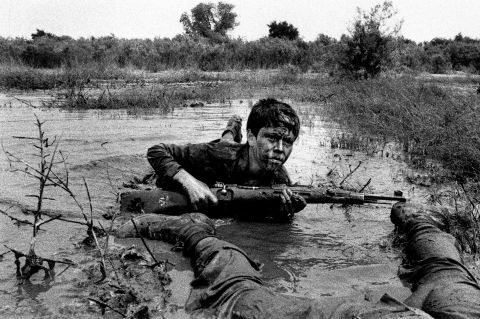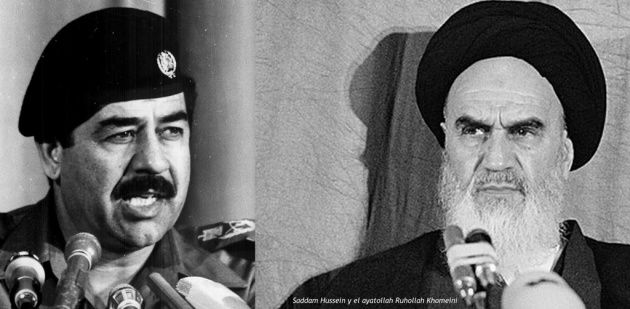The Iran-Iraq war, which lasted from 1980 until 1988, was one of the bloodiest wars of the twentieth century, killing nearly a million people, and causing great economic losses to the Arab and Persian countries.
The Iran-Iraq war is the result of several factors, including border disputes between the two countries, competition over oil and the search for influence in the region, in addition to the permanent tensions between the Shiite and Sunni communities.
In 1979, the Iranian revolution overthrew the Western-backed Iranian shah, and a new Islamic regime led by Ayatollah Khomeini seized power in Iran. In the years that followed, there was an escalation of tensions between Iraq and Iran.
On September 22, 1980, Iraq began the war by launching an attack on Iran, due to border disputes and competition for oil, and Iraq was trying to control the outlets of the Persian Gulf. Iraq has received support from some Arab and Western countries, and in return Iran has received support from some Islamic countries.
The war was characterized by a rapid escalation in violence and destruction, and all kinds of weapons were used, including chemical and biological ones. The use of chemical weapons has killed many people and injured many more
Of the thousands with serious diseases that could not be treated, it had a huge impact on the civilian population in the affected areas.
Although Iraq started the war with an attack on Iran, Iran was able to turn the confrontation into a defensive war, and after several years of fierce battles and human and material losses, an agreement was reached between the two parties in 1988, and the war ended.
The Iran-Iraq war left great repercussions on the two warring countries and on the entire region, as it caused the destruction of much infrastructure, industrial, agricultural and residential facilities. The war has also led to political changes in the region, as some regional countries and major powers are involved in the conflict, and this has led to geopolitical and economic transformations in the Middle East.
In addition, the war left deep psychological and social effects on the Iraqi and Iranian peoples, as they experienced homelessness, poverty and economic decline, and these effects had a great impact on the history of the two countries and the entire region.
In the end, the Iran-Iraq war is one of the bloodiest and most influential wars in modern history, and it continues to have a huge impact on the Iraqi and Iranian peoples and on the entire region.

Countries supporting both sides of the conflict
Several countries supported Iraq and Iran during the Iran-Iraq war that took place from 1980 to 1988. Among the main supporters of Iraq were the United States of America, the Soviet Union, and Arab countries such as Saudi Arabia, Kuwait, Egypt, the United Arab Emirates, Bahrain, Jordan, and Syria.
For its part, Iran got support from some European countries such as West Germany and France as well as the Soviet Union, China and North Korea. Some Arab countries, such as Syria, Libya, South Yemen and Hezbollah in Lebanon, have also provided Iran with support.
It should be noted that international support for the Iran-Iraq war was not limited to military support only, but also included logistical, economic, diplomatic and media support.
The end result of the war
It cannot be said definitively whether there was a winner in the Iran-Iraq war that took place between 1980 and 1988. The war was long and bloody, and caused great losses on both sides.
Despite this, some analysts argue that Iraq was the party that gained the most in the end. The Iraqi army, led by the late President Saddam Hussein, was able to maintain its control over most of the border areas between the two countries, and it was also able to achieve some regional and diplomatic gains.
For its part, Iran was able, despite the great losses it suffered, to preserve its independence and sovereignty, as well as to achieve some diplomatic and media gains at the international level.
The Iran-Iraq war was a very bloody war that still has repercussions to this day, and it reminds us of the importance of political and diplomatic dialogue in resolving international disputes in a peaceful way and preventing further destruction and human losses
Sources :
1- BBC : https://www.bbc.com/arabic/world-54239290
2- Britannica : https://www.britannica.com/event/Iran-Iraq-War
3- History : https://www.history.com/topics/middle-east/iran-iraq-war


